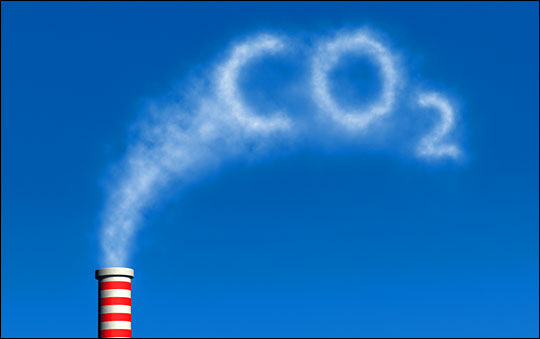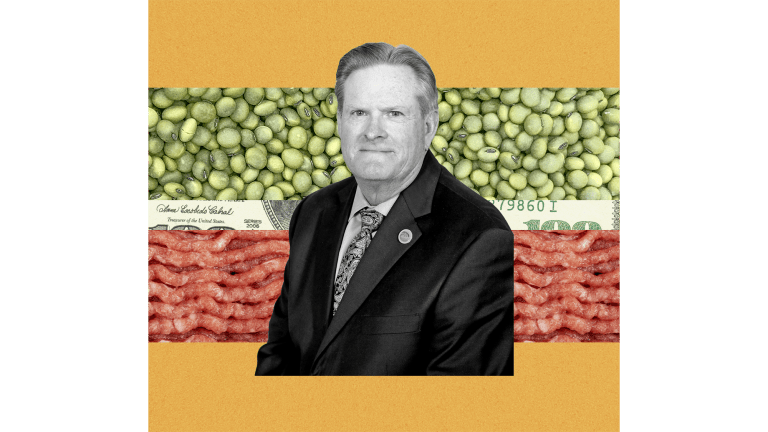
Fifty environmental and public-interest groups threw their weight behind a set of tough principles for climate legislation on Thursday. The principles are broad, but they set the stage for tension among the country’s major green groups on climate policy.
Endorsers of the National Call to Action on Global Warming [PDF] include a wide range of green groups, from biggies like the Sierra Club and Greenpeace to recent climate-centric upstarts 1Sky and the Alliance for Climate Protection, which was founded by Al Gore. Also on board are youth-oriented groups like the Hip Hop Caucus and Rock the Vote, health-focused organizations like Catholic Healthcare West, and economic-justice groups like ACORN.
The broad-based coalition hopes to generate a groundswell of public support for bold action. “We want the public in general, voters, concerned parents and grandparents to understand why it is we all must come together on this particular issue,” said Mary Wilson, president of the League of Women Voters, a coalition member. “We believe we need to be in the business of building public support … Washington needs to hear from voters.”
Notably, the new coalition does not include the Environmental Defense Fund, the Natural Resources Defense Council, The Nature Conservancy, the Pew Center on Global Climate Change, or the World Resources Institute. They all signed on to a less stringent climate proposal put out in January by the U.S. Climate Action Partnership, which is also endorsed by big corporate names like ConocoPhillips, Duke Energy, Ford, and General Electric. The environmental groups that signed on to USCAP agreed not to endorse anything tougher.
The new coalition of 50 groups is putting its emphasis on science rather than politics. “These principles will assure that our actions on global warming and energy are effective, efficient, and equitable,” said Emily Figdor of Environment America, a member of the coalition. “Our message is that science must lead the way.”
Digging into the specifics
The groups call for a climate bill with “science-based pollution reduction targets” that will cut U.S. greenhouse-gas emissions at least 25 percent below 1990 levels by 2020, and at least 80 percent below 1990 levels by 2050. They also call for those targets to be updated periodically as climate science progresses. The goal is to keep global temperatures from rising more than 2 degrees Fahrenheit, said Union of Concerned Scientists climate scientist Brenda Ekwurzel; there’s widespread scientific agreement that warming beyond that would cause irreversible changes to the planet’s ecological systems.
The coalition calls for 100 percent of carbon emission allowances to be auctioned off to polluting companies rather than distributed free of charge. They want auction revenues to go toward building a clean-energy economy, assisting displaced workers, offsetting increased energy costs for citizens, protecting natural resources from climate-change impacts, and helping developing countries fight and adapt to climate change. The coalition also wants strong rules to govern any carbon offsets that are allowed in a bill, to protect the integrity of a pollution cap.
In contrast, the USCAP blueprint calls for emissions reductions of 14 to 20 percent by 2020 and 80 percent below 2005 levels by 2050. Their plan would distribute about half of carbon allowances to industries at no cost, and allow a large portion of emissions reductions to come in the form of offsets.
One of the groups in the new coalition, the National Wildlife Federation, pulled out of the USCAP partnership in January rather than sign on to its blueprint, saying it planned to work separately to “enact a cap-and-invest bill that measures up to what scientists say is needed and makes bold investments in a clean energy economy.”
Robin Murphy, vice president for external relations at the World Resources Institute, which has endorsed USCAP, said he’s glad that colleagues in the environmental community will be pushing for their own climate goals and giving Congress other frameworks to draw from. “The Congress is the final arbiter on this … whether you have a united voice or not,” he said.
Murphy added that the two-year process they went through with business partners to arrive at the USCAP agreement is a good example of what the political process will be like on Capitol Hill. “It’s like a real-life incubator of when you really get people around the table and they have to make difficult decisions about how to square all of this,” he said. “With USCAP, at least we were taking in the concerns of two of the larger [players] — the environmental science as well as the practicalities of the marketplace.”
One key point of difference between the plans — how to distribute carbon allowances — is sure to be a contentious topic over the coming months. Like the new coalition, President Obama has called for 100 percent auction of carbon credits. But some congressional leaders — most recently Sen. Jeff Bingaman (D-N.M.), chair of the Energy and Natural Resources Committee — argue that a complete auction right away is not politically feasible.
Sierra Club global warming and energy program director David Hamilton acknowledged that 100 percent auction will be a tough lift. “The utilities are a challenge,” he said. “They want the money, they want it for free, and they’re going to jump up and down and scream and holler if they don’t get it.” But he emphasized that Obama’s backing is key.
Hamilton said the new principles are meant to be goal posts for sound policy rather than political calculations. “Those of us in Washington can talk about horse-trading and what the votes are and what you have to give up to get this thing through. And believe me, this is on all of our minds every day,” he said. “But at the same time, we have to succeed. And we have to develop a carbon control program that will do the job.”
Tony Kreindler of EDF, a USCAP endorser, struck a hopeful note, arguing that the major green groups are largely on the same page. “If you look at the overarching goal of this, it’s to get a mandatory cap, and cap-and-trade,” said Kreindler. “So the good news is we’re all united in that desire.”
As all the players acknowledge, it’s ultimately up to Congress to sort out what’s politically viable.
Here are the 50 groups that have signed on to the new set of principles:
1Sky
ACORN
Alliance for Climate Protection
Audubon
Catholic Healthcare West
Center for International Environmental Law
Ceres
Clean Water Action
Climate Law and Policy Project
Climate Protection Campaign
Climate Solutions
Defenders of Wildlife
Democracia USA
Earthjustice
Eco-Equity
Ecology Center
Energy Action Coalition
Environment America
Environment Northeast
Environmental Law and Policy Center
Green for All
Greenpeace
Health Professionals for Clean Air
Hip Hop Caucus
ICLEI USA
Institute for Agriculture and Trade Policy
Interfaith Power and Light
International Forum on Globalization
Kyoto USA
League of Conservation Voters
League of Women Voters
League of Young Voters
Massachusetts Climate Action Network
National Hispanic Environmental Council
National Teach-In on Global Warming Solutions
National Wildlife Federation
Oceana
Physicians for Social Responsibility
Progressive Future
Public Citizen
Religious Witness for the Earth
Rock the Vote
SEED Coalition
Sierra Club
Southern Alliance for Clean Energy
Teleosis Institute
The Humane Society of the United States
The Student Public Interest Research Groups
The Wilderness Society
Union of Concerned Scientists



